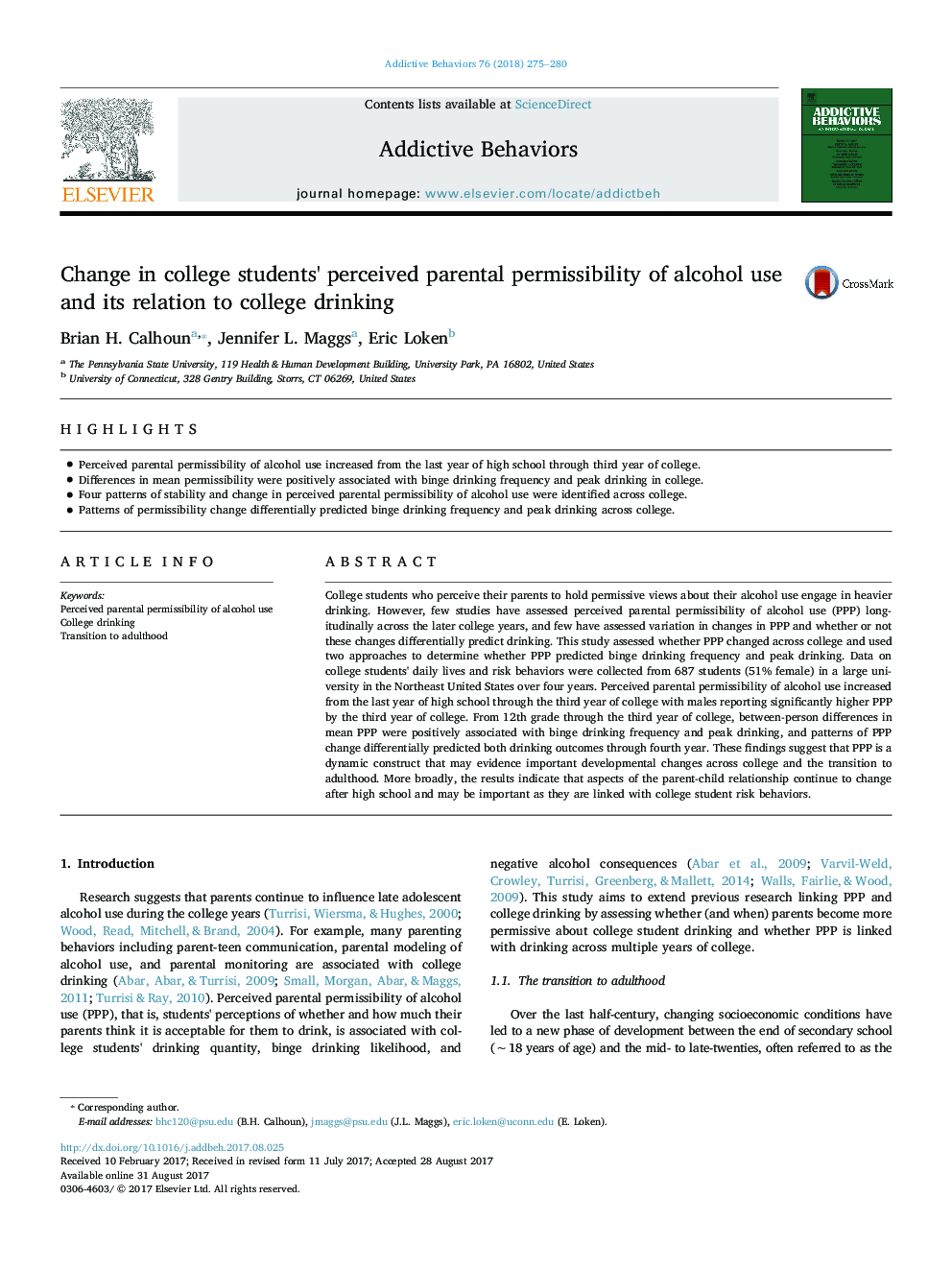| کد مقاله | کد نشریه | سال انتشار | مقاله انگلیسی | نسخه تمام متن |
|---|---|---|---|---|
| 5037635 | 1472495 | 2018 | 6 صفحه PDF | دانلود رایگان |
- Perceived parental permissibility of alcohol use increased from the last year of high school through third year of college.
- Differences in mean permissibility were positively associated with binge drinking frequency and peak drinking in college.
- Four patterns of stability and change in perceived parental permissibility of alcohol use were identified across college.
- Patterns of permissibility change differentially predicted binge drinking frequency and peak drinking across college.
College students who perceive their parents to hold permissive views about their alcohol use engage in heavier drinking. However, few studies have assessed perceived parental permissibility of alcohol use (PPP) longitudinally across the later college years, and few have assessed variation in changes in PPP and whether or not these changes differentially predict drinking. This study assessed whether PPP changed across college and used two approaches to determine whether PPP predicted binge drinking frequency and peak drinking. Data on college students' daily lives and risk behaviors were collected from 687 students (51% female) in a large university in the Northeast United States over four years. Perceived parental permissibility of alcohol use increased from the last year of high school through the third year of college with males reporting significantly higher PPP by the third year of college. From 12th grade through the third year of college, between-person differences in mean PPP were positively associated with binge drinking frequency and peak drinking, and patterns of PPP change differentially predicted both drinking outcomes through fourth year. These findings suggest that PPP is a dynamic construct that may evidence important developmental changes across college and the transition to adulthood. More broadly, the results indicate that aspects of the parent-child relationship continue to change after high school and may be important as they are linked with college student risk behaviors.
Journal: Addictive Behaviors - Volume 76, January 2018, Pages 275-280
